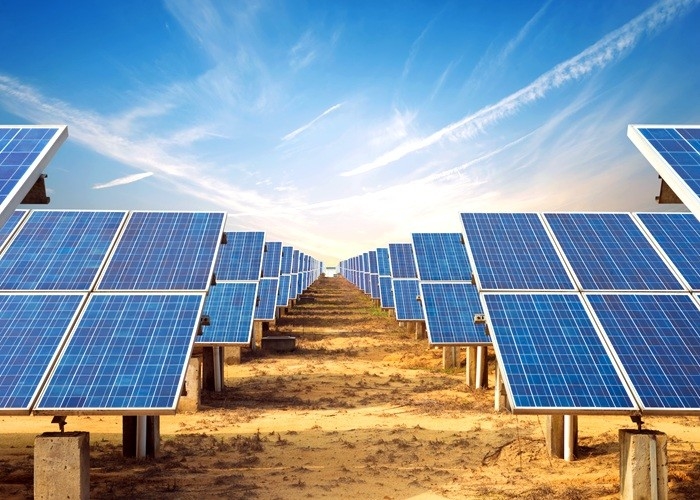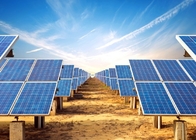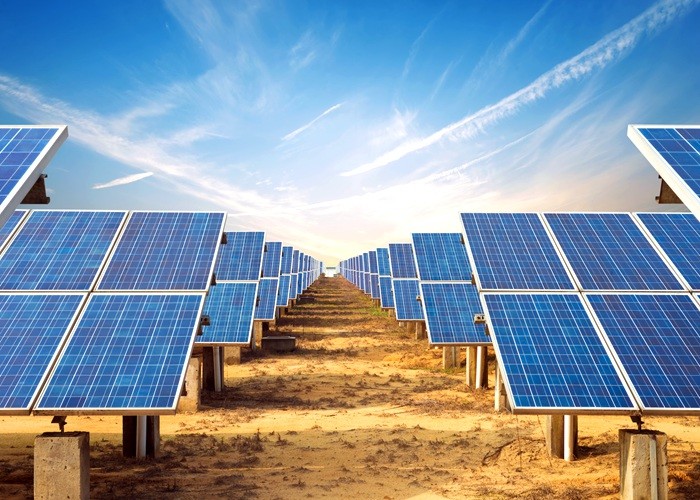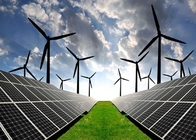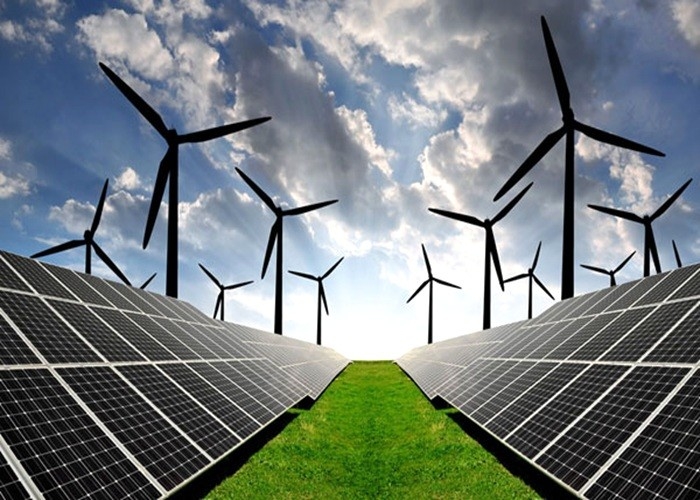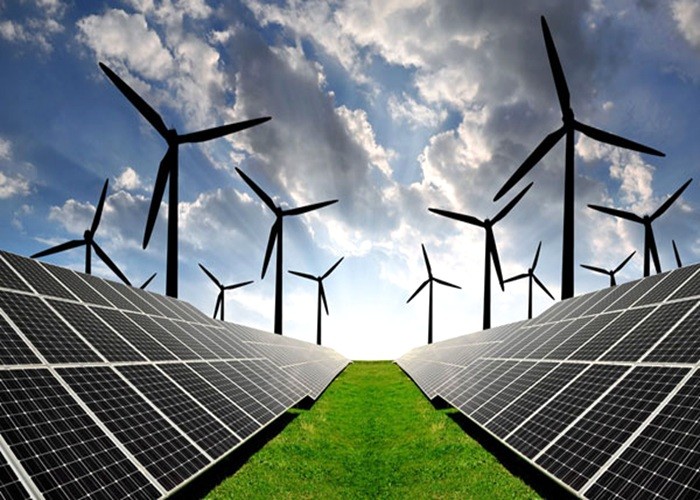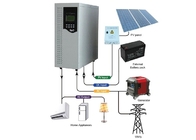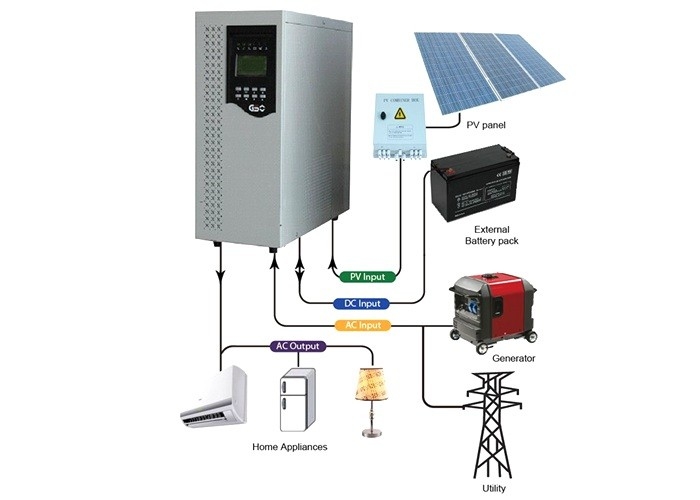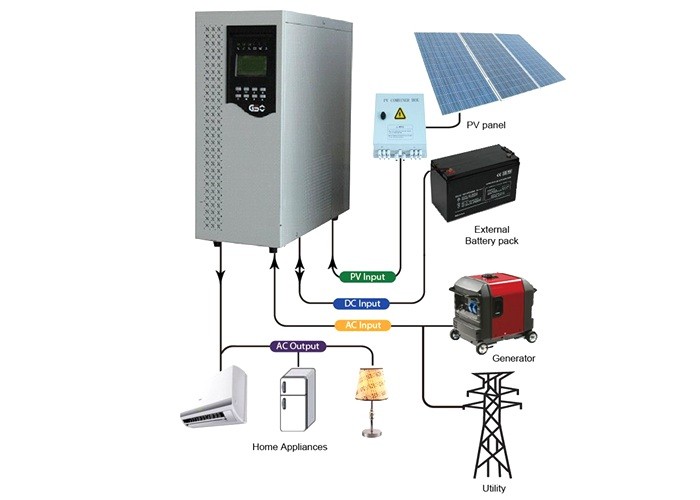Products Description
A solar power system is a form of photovoltaic technology that captures sunlight and transforms it into electricity. A 100-kilowatt (kW) solar power system is suitable for medium to large-scale commercial or industrial applications, providing significant cost savings and emissions reduction benefits. Although the energy output of a 100 KW solar power system may vary based on location and weather patterns, on average, it can generate around 400-450 kWh of energy per day. This amount of electricity is sufficient to power up to 60 households.
Advantages
1: Hybrid solar systems bring together the benefits of both grid-tied and off-grid solar power systems. They can either serve as off-grid solar systems with backup power from the utility company or grid-tied solar systems with extra battery storage capacity. If accessing or securing utility power is expensive or impractical, hybrid solar systems empower you to produce your own electricity using solar panels, granting you the freedom to act as your energy provider.
2: Durability and reliability are vital features of solar panels. These panels are engineered to withstand various weather conditions and can be relied upon for many years. With proper maintenance and care, a 100 kW solar power system can offer consistent and dependable power output for several decades, making it a wise and profitable investment in the long run.
3: A 100 kW solar power system promotes greater energy independence by reducing dependence on conventional energy sources. This is especially crucial for companies and institutions looking to enhance their energy security, decrease their vulnerability to power outages and disturbances, and align with eco-friendly initiatives. Apart from this, utilizing clean energy sources inherently boosts environmental credentials and strengthens a brand's market reputation.


100KW Solar Power System Including:
| Item |
Model |
Description |
Quantity |
| 1 |
Mono 350W solar panel
350P-72 |
Size:1960x992x40mm
Weight:22KG |
320PCS |
| 2 |
Hybrid inverter
100000W |
Output Voltage: 400V Hz:50-60HZ |
1PC |
| 3 |
Monitoring system |
Web Box |
2PCS |
| 4 |
Pv Combiner box |
10 input 1 output |
2PCS |
| 5 |
GEL battery |
2v 1500ah |
290PCS |
| 6 |
Mounting Structure |
On roof or on ground |
1SET |
| 7 |
PV Cables |
4mm2 pv cables |
1800M |
| 8 |
PV connector |
Rated Voltage:1000V |
100PAIRS |
How long does it take to see savings by using a solar power system?
Once your solar panel system is up and running, you can expect to see a drop in your energy bill the next month! However, it may take several years before you recover your initial investment. In our example, we used national averages, but if you save $1,430 per year, divide your total investment cost by $1,430 to estimate how long it will take to recoup all expenses.
Consider a 10 kW solar panel system, which costs roughly $15,000 for installation on average. After claiming the solar tax credit, the total expense dropped to about $11,250. If state or municipal tax rebates for solar installation are available in your area, your costs could potentially be reduced further. To calculate your return on investment, divide the total cost of $11,250 by the yearly savings of $1,430. This gives you an estimated approximately 8 years to recover your initial financial commitment. Any returns after this period are a net profit, but additional costs for system maintenance and repairs may be incurred.
As you continue reading, you may wonder, "How long can I use this power generation system if I'm willing to wait 8 years to recoup my investment?" Typically, a well-maintained residential solar panel system can last for 25-30 years. Keep this in mind when deciding whether to install solar panels at home.


 Your message must be between 20-3,000 characters!
Your message must be between 20-3,000 characters! Please check your E-mail!
Please check your E-mail!  Your message must be between 20-3,000 characters!
Your message must be between 20-3,000 characters! Please check your E-mail!
Please check your E-mail! 

